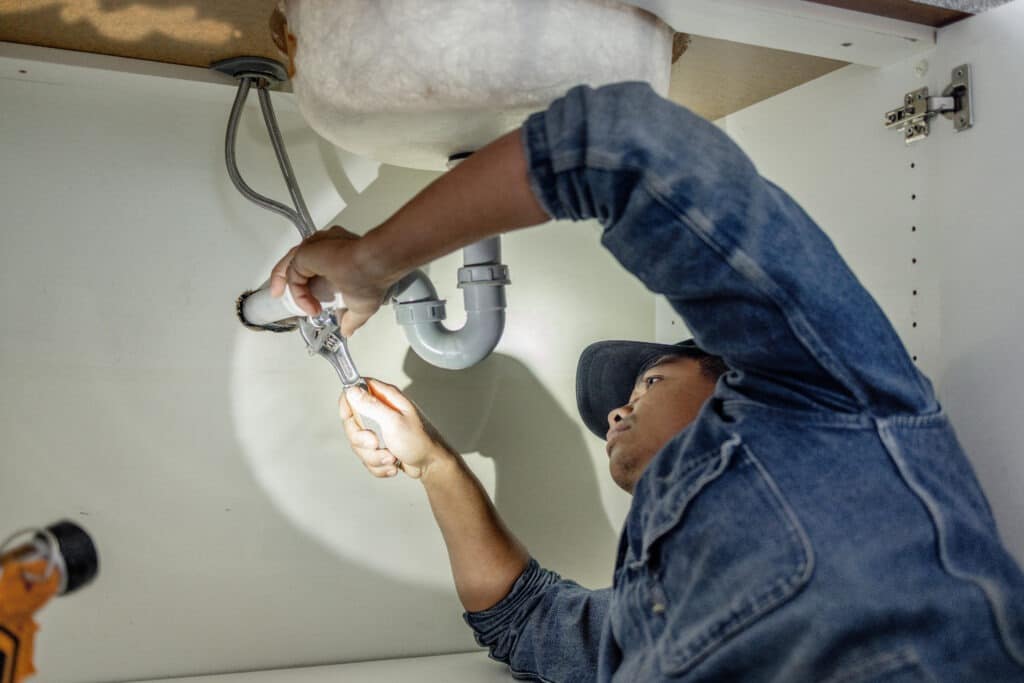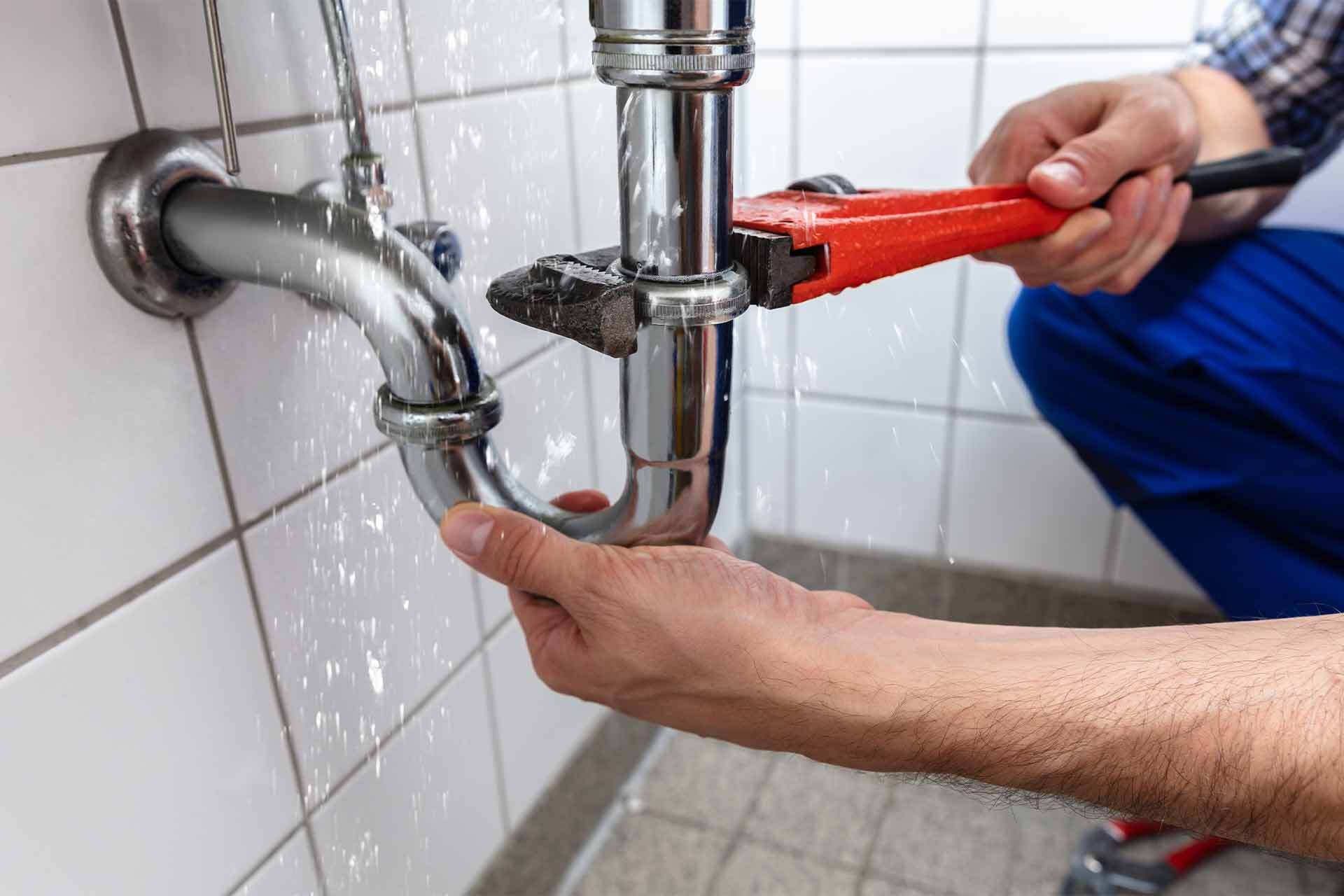Beginner's Guide to Bathroom Plumbing: Essential Guidelines
Beginner's Guide to Bathroom Plumbing: Essential Guidelines
Blog Article
Have you been trying to find related information concerning 11 Must-Read Tips for Plumbing a New House?

For brand-new home owners, understanding and maintaining restroom plumbing can save both time and money by avoiding expensive concerns down the line. Below are some essential shower room pipes pointers to aid you maintain everything running smoothly.
Familiarize Yourself with the Key Shut-Off Shutoff
Recognizing where the major water shut-off shutoff lies in your house is critical. This permits you to promptly switch off the water in case of major leaks or during plumbing emergencies, preventing extensive water damage.
On A Regular Basis Evaluate for Leakages
Little leaks can result in big problems. On a regular basis inspect under sinks, around bathrooms, and near plumbing fixtures for any kind of indicators of leakages. Search for dampness, tiny drips, or corrosion. Catching and repairing leakages early can stop a lot more significant damages and save water.
Don't Overlook Slow Drains Pipes
If your sink or tub is draining slowly, it's typically a sign of a clog creating. Addressing this early can protect against a complete clog. Utilize a plunger or a plumbing's serpent to clean out debris. Stay clear of using chemical drainpipe cleaners as they can harm your pipelines in time.
Know What Not to Flush
Commodes are not waste disposal unit. Stay clear of flushing anything other than bathroom tissue and human waste. Products like wipes, feminine health products, and cotton swabs need to be thrown away in the garbage to avoid clogs and sewage system backups.
Install Strainers in Drains
Place strainers in your sink and bath tub drains to capture hair and other particles prior to they enter your plumbing system. Cleaning the strainers frequently will help stop build-up and maintain water moving freely.
Maintain Your Hot Water Heater
Guarantee your hot water heater is set to an appropriate temperature (commonly about 120 levels Fahrenheit) to avoid hot and minimize power usage. Flush the storage tank annually to eliminate debris buildup, which can minimize the effectiveness and lifespan of your heating unit.
Upgrade Your Fixtures
If your home has older components, consider updating to more reliable designs. Modern commodes, showerheads, and taps are developed to utilize less water while giving great stress, which can dramatically reduce your water bill and environmental impact.
Beware with DIY Plumbing Services
While it's tempting to take care of all home repair services by yourself, be cautious with plumbing. Some problems could call for specialist competence, especially if they include main water lines or sewage system fixings. Employing an expert can sometimes be extra affordable than DIY, particularly if it protects against more damages.
Plan For Winter
Protect your pipes from freezing during winter by insulating pipes in unheated locations like cellars, attics, and garages. During extreme cool, let cold water drip from faucets served by subjected pipes to assist avoid freezing.
Arrange Routine Upkeep
Think about organizing annual evaluations with a qualified plumber. They can find problems that you might miss, such as hidden leaks or damage on pipes and components. Normal upkeep assists extend the life of your pipes system and can avoid emergencies.
Conclusion
Recognizing and maintaining your home's washroom plumbing can prevent lots of typical concerns. By adhering to these necessary suggestions, you can guarantee your shower room stays useful and effective, conserving you time and money over time.
8 Valuable Plumbing Tips for New Homeowners
Start With a Plumbing Inspection
It’s a good idea to call professionals to do the plumbing inspection. An inspection before moving in will help you realize any underlying plumbing problems so they don’t cause any inconveniences.
Inspections will help you realize any problems early enough and fix them before they cost you much more later. It’s even better if you do it before moving in.
Call professional inspectors who use high-tech equipment and cameras to survey the sewer systems and find hidden water pipes. They then check the conditions of the pipes and recommend solutions in case of problems. Even after moving in, carry out regular inspections to ensure everything is working optimally.
Understand the Signs of a Water Leak
Water leaks will damage your home if you don’t realize them early. If you’ve never owned a home before, you may have no idea about water leaks. Signs of leaking water include dripping sounds, signs of running water on the walls, or soft wallboards.
Inspect your cabinets to check for any signs of moisture and leaks. Also, record your monthly water bills. If you’re receiving high bills than normal, maybe the pipes are leaking water.
Clean the Drains to Prevent Clogging
Many things can block your drains. Soap, debris, oil, and hair are those dangerous things you don’t want to allow down the drains. If you don’t take care of them as soon as you move in, they’ll clog your drains and cause problems.
But sometimes you enter the house and notice that the drains are already clogged? You need to start the unclogging work by pushing down the debris using a plunger. Homemade solutions such as a combination of dish liquid and vinegar can also do the job.
Regularly clean your drains and prevent any dirt from piling up. No one wants to deal with clogged drains, and prevention is always better than cure.
Locate Your Water Valve
You need to know where to close if there’s a water leak or a burst pipe in your home. The main valve is located in a green utility box outside the house. In some houses, the valve is mounted underground.
Some valves are located inside the house in case there’s a utility room or in the basement. You’ll find the shutoff valves behind the plumbing fixture in the areas they serve. This can be behind the toilet, in the laundry area near the washing machine, or behind the toilet.
Put Weather Proofing the Pipes Among the Plumbing Tips
Weather can be the biggest enemy of your pipes. The colder seasons are the most dangerous because they can freeze the pipes. Frozen pipes can burst at any time, causing serious flooding and water damage in your home.
Avoid frozen pipes by clearing the lines and turning off the valves before the winter season. Insulate the exposed pipes using heating tape, fiberglass, or foam rubber sleeves. Open the cabinet doors to allow warm air circulation and put the faucets in a slow drip.
Learn Some Maintenance Tips for Your Faucet and Toilet
The toilet’s flapper and faucet cartridge will get old with time, and you’ll need to replace them. You don’t need to call a professional to repair your faucet and toilet whenever they have problems. Buying the new ones only cost a few bucks and comes with clear instructions for DIY faucet installation.
Don’t be afraid to try changing the cartridge or the flapper when you experience a leakage problem. It only takes a matter of minutes to remove a few screws, and you’ll be ready to go. You don’t need to spend all that money to hire someone when help is in your hands.
Have Your Emergency Items Ready
You need to have your plumbing kit within your reach always. Whenever you experience an emergency such as a water leak, you should grab your tools and get ready to fix the problem. Some of the essential tools for the work include a plunger, paper rolls, duct tape, a screwdriver, and towel rags.
Don’t forget to have hex keys ready so you can adjust the small bolts and fix multiple plumbing issues right away. You should also know that you won’t be able to fix all the plumbing issues all by yourself as some are too complicated. Ensure you have a contact list of certified and licensed plumbers near you.
Make Use of Simple Home Items
Many plumbing problems have their solutions right at home, and you don’t have to spend a dime. Some of the resources you have at home, such as a dishwasher, a bucket of water, or the drain snakes, can do the work.
A full bucket of water down the toilet bowl can help fix a toilet bowl issue. Pouring the water at high speed down the toilet drain will unclog everything and unblock the toilet. A plunger and a drain snake are also helpful for unclogging drains, tubs, sinks, and toilets.
Learn the Right Plumbing Tips and Take Care of Your Home
It’s always good to try and save some bucks whenever possible. These simple plumbing tips will help new homeowners settle smoothly and avoid petty issues. Well, there are some plumbing issues you can’t fix yourself, and you need a reputable plumber to help.
If you decide to seek professional services, there will be no better place to go than Mr. Rooter Plumbing. Get in touch with us, and let’s give you a plumbing estimate in Austin. We’re always here to ensure you get the best plumbing services for your home.
https://www.mrrooter.com/austin/about-us/blog/2021/may/8-valuable-plumbing-tips-for-new-homeowners/

Visit Page Report this page